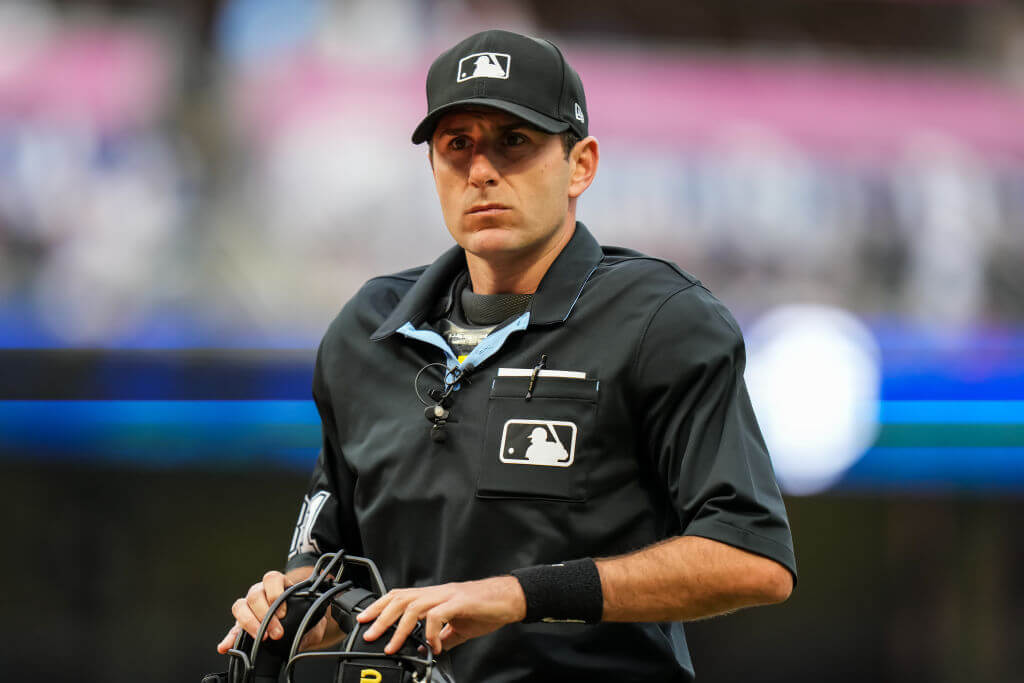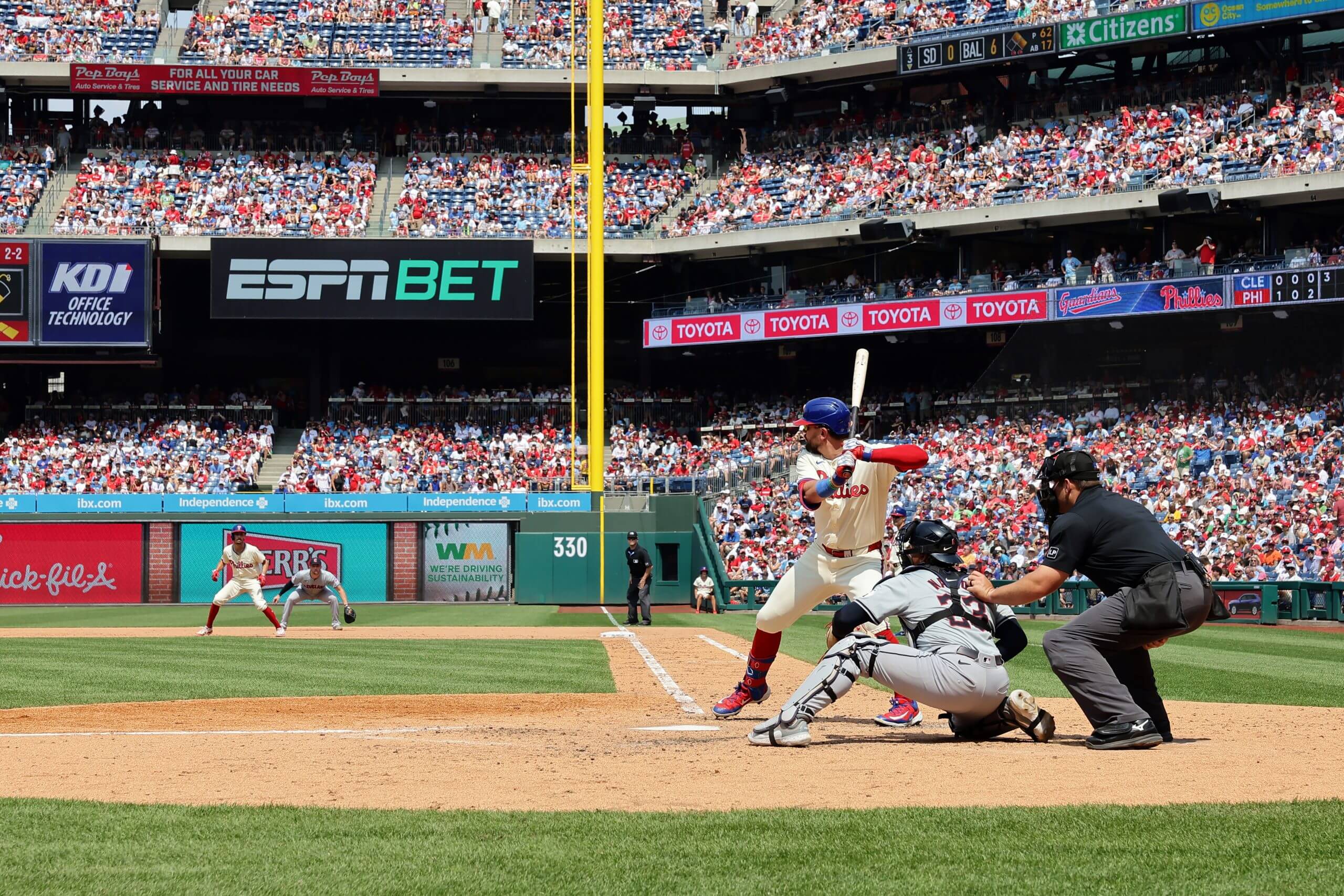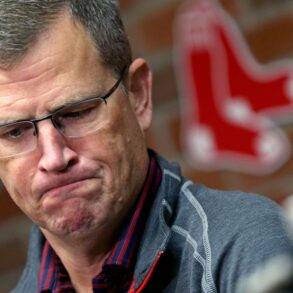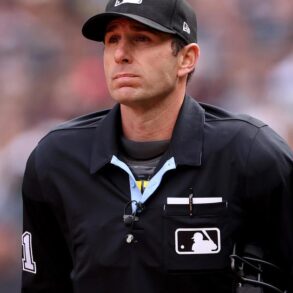When the Loma Prieta earthquake shook San Francisco just before the third game of the 1989 World Series, it halted the sport for 10 days. Fay Vincent, in his first full month as baseball commissioner, could not have predicted the disaster. But he always knew the fault lines.
Vincent, who died on Sunday at 86, was acutely aware of the danger just below the surface of the game. Baseball’s pastoral veneer was shattered once before, by a gambling scandal that created the need for a commissioner in 1920. He went to his grave fearing it could happen again.
Advertisement
Consider this his final warning to the sport he adored.
“Gambling always leads to corruption,” Vincent said in a lengthy conversation with The Athletic in November. “Corruption always leads to problems that are very difficult to fix. And when you are trying to fix them in the heat of the white light and the stress and the pressure, you are likely to pay a very big price in terms of delay and an overstatement or an over-administration of absurd redress or punishment.
“So if there were one piece of advice I’d give to anybody reading your piece, it’s please do not think that the clock is not a ticking problem. It is.”
Vincent knew the subject intimately. He was deputy to Bart Giamatti during the Pete Rose gambling investigation, which resulted in a permanent ban for Rose in August 1989, just before Giamatti’s fatal heart attack. Rose was banished for betting on games involving his team, and nobody repeated the infraction for decades.
Last year was different. The sport’s biggest star, Shohei Ohtani of the Los Angeles Dodgers, lost nearly $17 million when his interpreter Ippei Mizuhara — his shadow in the dugout and clubhouse for years — stole from him to support a gambling habit.

MLB announced that umpire Pat Hoberg, who had been investigated by the league, was terminated on Monday. (Brace Hemmelgarn / Minnesota Twins/Getty Images)
Tucupita Marcano, a utility player for three seasons, received a lifetime ban for betting on his team, the Pittsburgh Pirates, while he was on their injured list in 2023. Four other players were banned for one year for gambling while in the minors; one of them, Andrew Saalfrank of the Arizona Diamondbacks, had recently pitched in the World Series.
Monday brought more gambling-related news: the league announced that commissioner Rob Manfred had upheld, through an appeal process, the termination of umpire Pat Hoberg, who was investigated last year.
“The disciplinary action was taken due to Hoberg’s failure to uphold the integrity of the game by sharing sports betting accounts with a professional poker player and friend who bet on baseball,” the league said.
Advertisement
Major League Baseball has been official partners with FanDuel — the league’s “authorized gaming operator” — since 2019. The MLB Players’ Association also reached a licensing agreement with FanDuel in November. Networks regularly sprinkle betting information into their telecasts, and gambling ads clutter many ballparks. The Athletic has a business partnership with the online sportsbook BetMGM.
To Vincent, there was no overstating the danger of gambling to the sport.
“The single biggest development in the modern history of baseball was not Jackie Robinson, although that was monumentally important,” Vincent said. “Even more important — sadly and tragically for all of American culture — is the legalization of betting on sports. The gambling infestation, which is really the right word, of our culture, is a tragic one. And it was done by a mistake — a drafting error in the legislation that prohibited betting on sports.”
Vincent was referring to the Professional and Amateur Sports Protection Act of 1992 (PASPA), enacted during his tenure as commissioner, which essentially banned sports betting in nearly every state. The United States Supreme Court overturned the law in 2018, ruling in Murphy vs. National Collegiate Athletic Association that the federal government could not force individual states to follow PAPSA.
Vincent said that Congress should have tried to re-word the statute to uphold the 1992 law. But he understood the grounds for its termination.
“The legislation that I worked on — and sat next to (Senator) Bill Bradley while it was being passed — said that the states may not authorize or permit betting on any sport,” Vincent explained. “Now, that language says something the 10th Amendment says you can’t do. If the statute had said betting on sports is illegal in the United States, that would be a flat-footed, absolutely, totally legal sentence. But that’s not what the statute said. So the statute was wrong.”
Advertisement
The 2018 decision has spawned a legal sportsbook industry that posted a record $10.92 billion in revenue in 2023, according to the American Gaming Association’s annual report last February. It was a staggering 44.5 percent year-over-year increase from 2022. Policing it all is virtually impossible.
“We’re going to find that baseball and the sporting world has never really adopted a series of rules or regulations that make any sense,” Vincent said. “They will tell you the rules that applied to Pete Rose still apply, but the Pete Rose world has long passed. The biggest menace to professional sports and college sports is corruption — that is, if you corrupt the result and you persuade the American people that some of the players are cheating and some of the gambling people are paying off others for information.”

A sign at Citizens Bank Park is one of many ads for sportsbooks now displayed in major-league stadiums. (Hunter Martin / Getty Images)
Vincent, who worked for a time as an associate director of the United States Securities and Exchange Commission, added: “Don’t forget, in the stock market, the thing that really is dangerous is so-called inside information. Well, if you’re the left-handed starting pitcher and your mother bets $2,000 whenever you pitch, you could call her and say, ‘Mom, I’ve got a blister on my finger, I’m not going to be able to pitch today — be sure you don’t bet.’”
Another moral issue, Vincent said, had deeply bothered him in recent years: the Houston Astros’ electronic sign-stealing scandal, which marred their 2017 championship. Vincent said Manfred should have stood up for the principle of fair play by punishing the players and taking on whatever legal challenge they might have made.
Of course, the league granted immunity to players for participating in its investigation, and named no active players in its report. Even so, the desire for accountability, for an upstanding game, was consistent with Vincent’s vision.
His strength of convictions was his epitaph.
“You cannot be, in effect, a judge or for that matter a really major figure in any of the sports without taking abuse,” Vincent said. “It’s what you get abuse for that matters. And I’m going to say to you that the only thing I care about is the conclusion that Fay Vincent tried to do the right thing. Was he always correct? No. Did he make mistakes? Yes. But he stood for some things, and he stood for them very strongly.”
(Top photo of Fay Vincent with former Cincinnati Reds owner Marge Schott in 1990: Jim Commentucci / Getty Images)
This post was originally published on this site be sure to check out more of their content.







